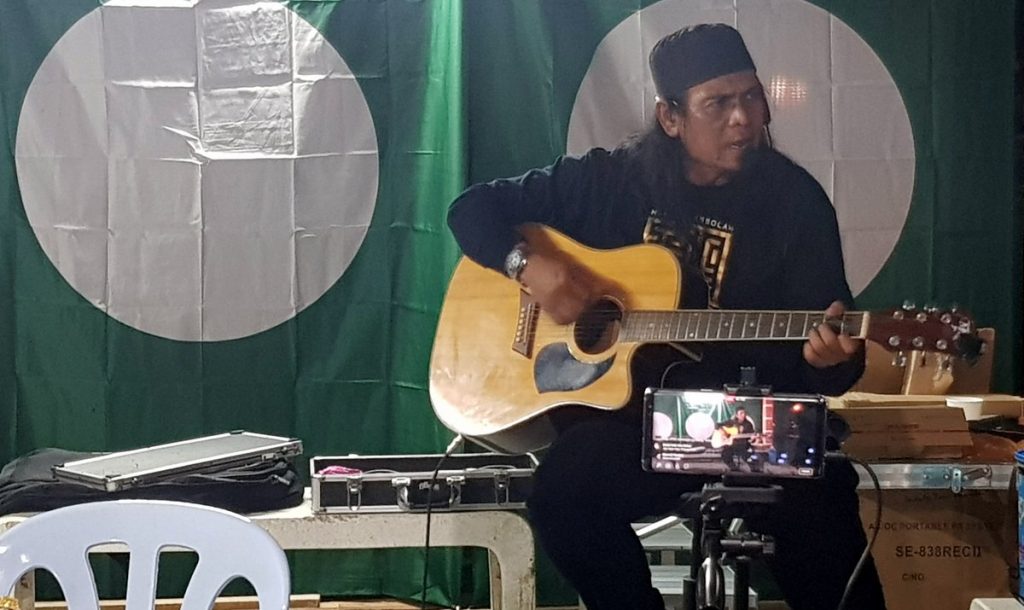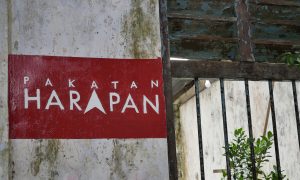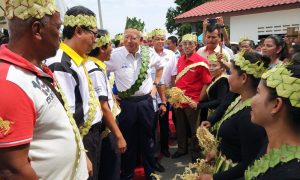There was a limit to playing identity politics during the 14th General Elections (GE14), but it’s now too simplistic to say there’s a “new politics” where race and religion no longer matter in Malaysia. Malaysia is not totally free from elements of Bumiputraism and Islamism, yet there are diversifications and transformations of discourses and practices in political Islam. And these changes will continue to shape and be shaped by political contestations in this “new Malaysia”.
Opposition party PAS and victorious Pakatan Harapan (PH) coalition party Amanah are unlikely to cooperate in the name of Islam. Although both claim to be Islamic parties, their approaches are rather different. PAS is a more Malay-oriented Islamic party with its strongholds in Kelantan and Terengganu, while Amanah is a more cosmopolitan and reformist-inclined Islamic party with a support base in the urbanised Klang Valley. Such Pas–Amanah competition might be also framed as a contestation between orthodox versus moderate Islamism, Islamism versus post-Islamism, or political Islam 1.0 versus 2.0; of course, the realities are more much more complex than these differentiations. Hence, it is a mistake to claim that Malay Muslims in the Klang Valley are less “Islamic” than those in the east coast states, just because they did not vote for PAS.
At GE14, PAS won 18 parliamentary seats while Amanah secured 11 seats. However, the “Islamic voice” in the winning PH coalition also exists in its other component parties PKR (Parti Keadilan Rakyat) and even PPBM (Parti Pribumi Bersatu Malaysia), as there are leaders with ABIM (Angkatan Belia Islam Malaysia) and IKRAM (Pertubuhan IKRAM Malaysia) background in both parties. In short, PAS is no longer the only dominant force representing political Islam in Malaysia, as it’s facing strong challenges from other political parties and also NGOs with Islamic credentials.
Many Malaysians, including Malay Muslims, voted against Najib Razak and issues such as the GST in GE14. Yet where these Malay protest votes go are configured by political orientations among Malay Muslims, depending on regions. In the southern states such as Johor, Malay nationalism is strong and PAS is not an important force. Hence the anti-Najib voters’ swinging to PH.
But in the east coast states, PAS is strong on its own. After successfully denouncing Amanah and consolidating its hardcore supporters, the party ran extensive campaigns against the GST and corruption to attract anti-Najib voters. It may be inaccurate to claim that many Malay Muslims in Kelantan and Terengganu were voting for RUU355, a parliamentary bill proposed by PAS president Hadi Awang to enhance existing Syariah laws.
In the Klang Valley, potential PAS voters are much more diverse and sophisticated than those in the east coast. Aside from the PAS hardcore, there are also supporters of Anwar Ibrahim, ABIM, Ikram, and other Islamic movements. At GE14, the PAS hardcore stayed loyal yet others, especially those from ABIM and IKRAM, ran effective campaigns for PH, lending the coalition much-needed Islamic credentials. They have successfully persuaded many former PAS voters in the Klang Valley to vote for PH.
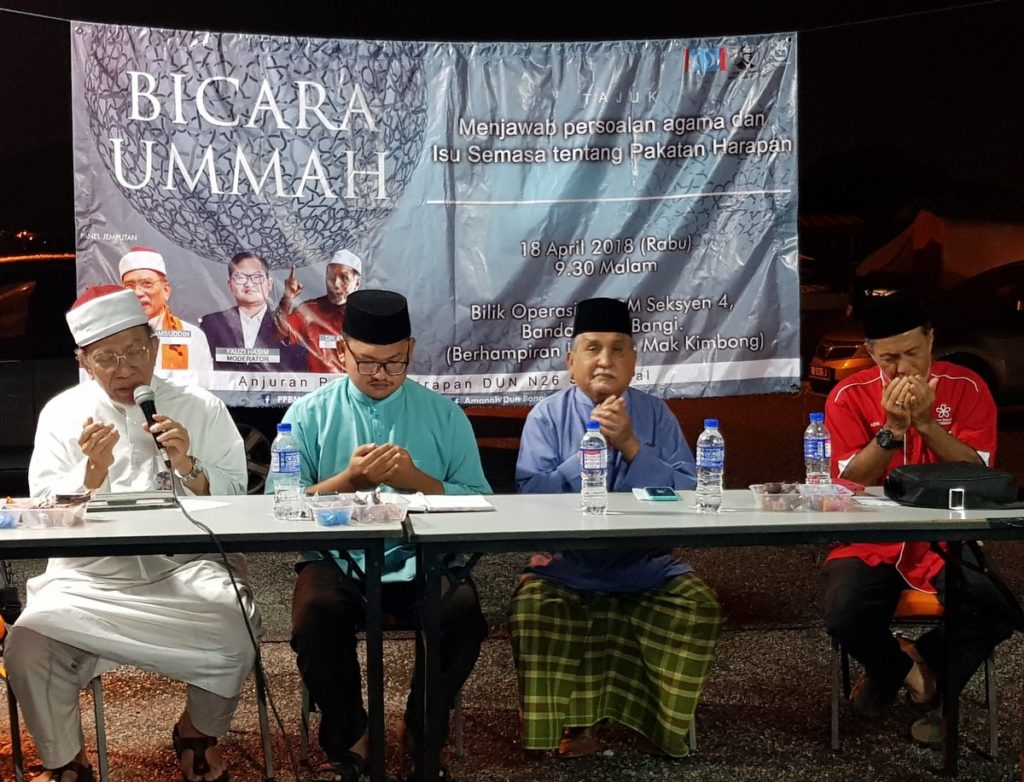
Many observers have focused on PAS’ winning Kelantan and Terengganu states on its own, attributing its victories to religious factors and describing PAS voters as a “moral constituency”. However, such analyses often wrongly suggest Muslims who have voted for PH are less “Islamic” and less concerned about “moral issues”. Many have also taken urban Muslim supporters of PH for granted.
Take the case of Sungai Ramal (formerly Bangi), a Malay-majority urban state seat in Selangor. By exploring how PAS and PH (represented by Amanah) competed to win over pious urban Muslim voters, by offering different approaches to political Islam, its results tell us more about the transformation of political Islam in urban Malaysia.
Like Shah Alam, Bangi or to be more accurate Bandar Baru Bangi (Bangi New Town) was an urban development project under the New Economic Policy (NEP) to increase the urban Malay population. The state assembly seat of Bangi, renamed Sungai Ramal in 2018, had previously been won by PAS in 1999, 2008, and 2013. Yet it was captured by PH in 2018. The main offices of ISMA (Ikatan Muslimin Malaysia) and HTM (Hizbut Tahrir Malaysia) are located in Bangi, while many ABIM and IKRAM activists also reside in this township.
Bangi is generally seen as a “middle-class Malay Muslim” township. It’s also known as “bandar ilmu” (“knowledge town”, where UKM and KUIS are located) and “bandar fesyen” (“fashion town”, where many Muslimah boutiques and halal eateries are situated). During the GE14 campaign, some Amanah leaders also called Bangi “bandar Rahmatan lil-Alamin”—an inclusive Islamic township which is “a blessing for all”.
After the controversial redelineation exercises nationwide by the Election Commission (EC), the state constituency of Bangi not only got a new name (Sungai Ramal) but also an increase in Malay voters, from about 66% to 80%. Such demographics might have indicated a higher chance for PAS to retain the seat or perhaps enabled UMNO to wrest the seat back. However, as I have observed during the election campaign, Bangi was a battleground between PAS (represented by Nushi Mahfodz, a celebrity ustaz) and Amanah (represented by Mazwan Johar, a lawyer and ex-PAS activist), given that UMNO was not popular among many urban, educated middle-class Malay Muslims.
In order to engage with its middle class and youth members, as well as to win over support from a broader set of pious Muslims, the PAS leadership in Selangor knows its religious credentials alone are not enough. Party strategists have introduced the idea of “technocratic government” (kerajaan teknorat), running events such as “town hall” meetings featuring the party’s youth leaders from professional backgrounds. But religious issues are still central to the PAS campaign. It fielded Nushi Mahfodz, a lecturer at KUIS (Kolej Universiti Islam Selangor) and a celebrity ustaz, as an attempt to win over pious voters. PAS also had certain controls over mosques, religious schools and kindergartens across Bangi.
But there were some uncertainties and dissatisfaction among PAS supporters during GE14, and they posed challenging questions to party leaders over the campaign. According to PAS ceramah attendees I met, there were different levels of support toward the Islamist party. Some were hardcore PAS members, some were dissatisfied members considering voting for PH, while others who were unhappy with the party leadership still stayed loyal to the party. One of them used the analogy of a classroom: “the teacher might be wrong, but the textbook is always correct. We can criticise the teacher, but we can’t throw away our textbook”.
Pakatan Harapan was well aware it was not enough to campaign solely against the GST and corruption if it wanted to win over pious Muslim voters in Bangi. So it wasn’t a surprise that Amanah arranged a dialogue in Bangi during the GE14 campaign featuring Ustaz Nik Omar, the eldest son of the late Nik Aziz, the revered former PAS spiritual leader. In that dialogue, Nik Omar suggested that his father was not only fighting for the party (PAS), but also more importantly for Islam and for dakwah. For him, dakwah was an “Islamic outreach” towards the broader Muslim community and non-Muslims as well. Compared to “inward-looking” PAS, Nik Omar found PH a better platform for dakwah. In some ways, he carried the legacy of his father, emphasising the need to engage with broader societies while upholding an Islamic agenda.
But Nik Omar himself suffered a heavy defeat in Kelantan, where PAS hardcore supporters in the east coast were ideologically committed and highly loyal to the party. Yet Nik Omar played an important role in helping PH win over fence-sitter Muslim voters, especially in the Klang Valley. If Dr Mahathir Mohammad with his “Malay nationalist” outlook convinced some previously UMNO voters to switch their support to PH, Nik Omar with his “Islamic credentials” persuaded some previously PAS voters to swing their support to Harapan.
By hailing Nik Aziz as an exemplary Muslim leader in its elections campaign, Amanah emphasised social inclusiveness, working with people from all walks of life including non-Muslims. Yet, at the same time, it maintained certain conservative religious and moral viewpoints. For example, some of its leaders committed PH to not allowing cinemas and alcohol sellers in Bangi. In addition to Nik Omar, many ABIM leaders living in Bangi including its first president Razali Nawawi and fourth president Muhammad Nur Manuty also gave their support to PH candidates. A local PKR leader who ran one of the campaign offices was also from an ABIM background. The main campaign team for the Amanah candidate included youth activists from IKRAM.
As the results showed, a combined effort by Amanah, PKR, IKRAM and ABIM activists defeated the incumbent PAS candidate in this urban Malay Muslim-majority seat. The PH coalition won with 24,591 votes, with PAS securing 13,961 votes while UMNO only got 9,372 votes. As compared to the 2013 elections, there was a huge decrease in both PAS voters (dropping to 13,961 from 29,200 previously) and UMNO voters (to 9,372 from 17,362 previously). In other words, about half of previously PAS and UMNO voters swung their support over to Pakatan Harapan.
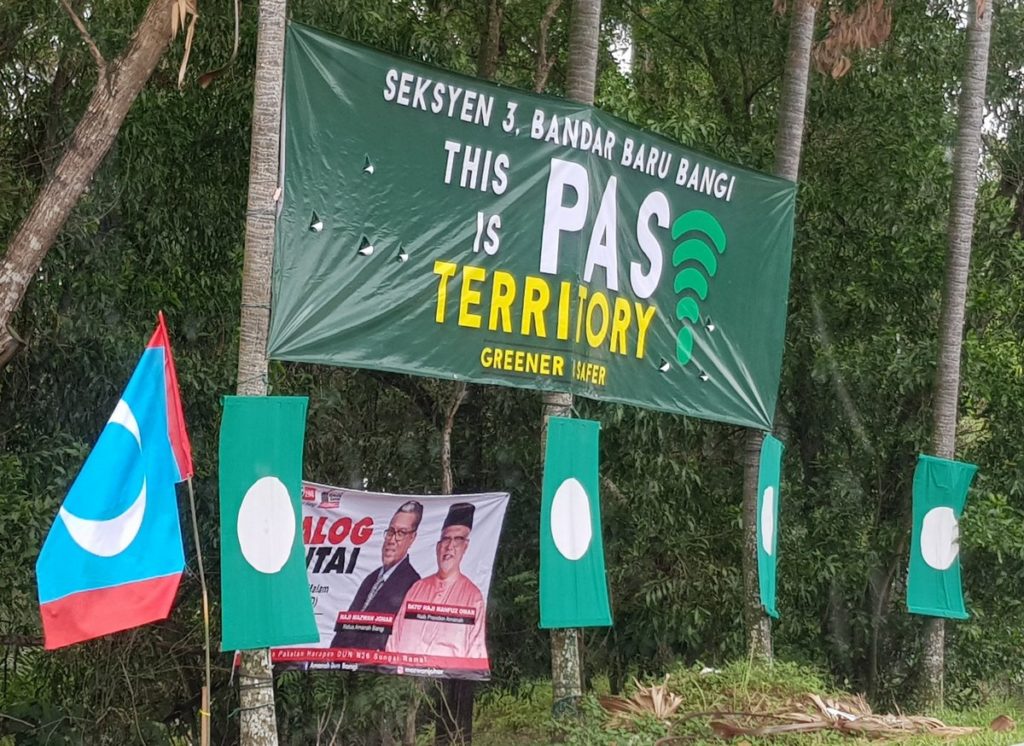
Faith no more in Bangi
Various reasons contributing to this change of voting patterns include the possibility that a significant number of former PAS voters are also supporters of PKR, ABIM, IKRAM, and other Islamic organisations. They are pious voters who consider Islam as an important factor in their voting but they’re not loyal PAS supporters. At GE14, many of them indicated their acceptance of PH as an “Islamic alternative”. Despite that, PAS was still able to keep its 30% support base of Muslim voters in Bangi, suggesting that the Islamist party still has influence among urban Muslims in the Klang Valley. It might be premature to conclude that PAS is only a regional party with influence in the east coast and northern states.
The GE14 result reflects the enduring influence of PAS and it remains one of the key players of political Islam in Malaysia. Yet at the same time, Amanah and PKR, and to a lesser extent, PPBM, together with IKRAM and ABIM, have offered a viable “Islamic alternative” for pious Muslim voters. Over the next few years, can PAS rejuvenate or expand its support base in the Klang Valley? Can Amanah make further inroads into the east coast states?
The competition for pious Muslim voters will continue to shape and be shaped by Malaysian politics. Anwar Ibrahim recently visited his comrade Recep Tayyip Erdogan in Turkey, while Nik Omar and some Amanah leaders have also made references to Erdogan. Some liberal Muslims have questioned the suitability of Maszlee Malik as the Minister of Education because of his perceived “Islamist” background, and he replied such critics by pointing out “being religious is not a crime”.
Prime Minister Mahathir Mohamad has stated his intention to revamp the federal government’s Islamic affairs bureaucracy JAKIM, leaving the room open for further competition among different Islamic groups in Malaysia. Such competition will also be configured by the engagement of Muslims from various backgrounds—from traditionalists to modernists, from secular-minded to Islamist-minded, from progressive to conservative. And there are the interactions with non-Muslim Malaysians to consider as well.
| DUN Sungai Ramal
(formerly Bangi) |
2018
Total voters: 54,961 Malays 80% Chinese 9% Indians 10% Others 1% |
2013
Total voters: 53,268 Malays 66% Chinese 19% Indians 13% Others 1% |
| BN-UMNO | 9,372 | 17,362 |
| PAS | 13,961 | 29,200 |
| PH-Amanah | 24,591 | – |
Election results in the Sungai Ramal state seat (formerly Bangi) in 2018 and 2013 [data from https://undi.info]
 Facebook
Facebook  Twitter
Twitter  Soundcloud
Soundcloud  Youtube
Youtube  Rss
Rss 